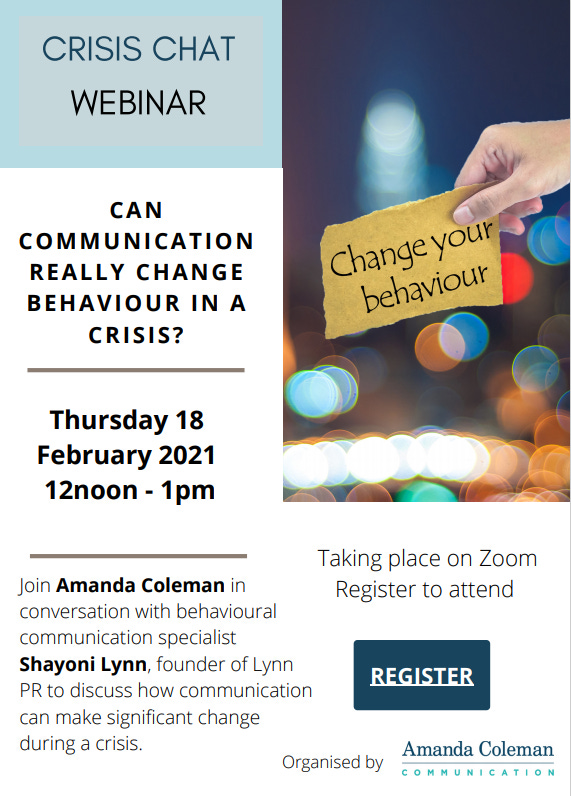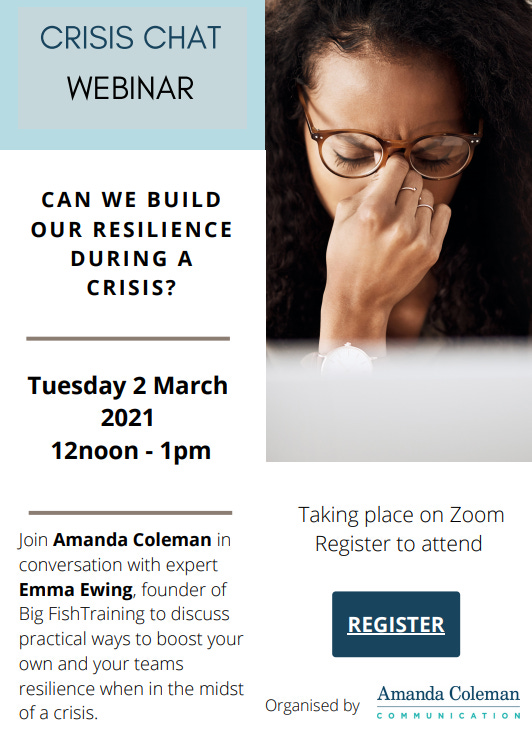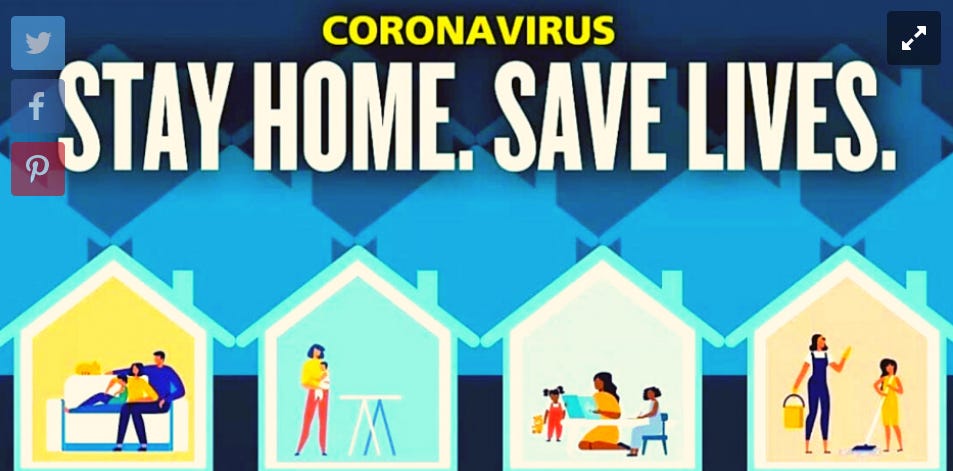New crisis communication webinar series launched
After really positive feedback about the webinars last year, I have decided to run a series of three new free webinars. The aim is to take a look at crisis communication in a different way, considering new elements and sharing ideas.
The first #crisischat webinar looks at the role of behavioural change and communication when dealing with a crisis. Expert Shayoni Lynn, founder of Lynn PR, will share her views and insights. It takes place on Thursday 18 February at 12noon GMT. Each session lasts an hour and is free.
The second session considers whether you can build resilience while you are in the middle of a crisis. Founder of Big Fish Training Emma Ewing will give hints, tips and ideas on what people and teams can do. It is on Tuesday 2 March at 12noon GMT.
A final session is on Thursday 4 March 12noon GMT considering the role of artificial intelligence in the management of crises and the associated communication. Details will be confirmed in the next couple of weeks.
To join:
Behavioural Change and comms: Click here
Resilience in a crisis: Click here
It is a great opportunity to take a little bit of time to focus on how to be prepared for the future. If you have any ideas of subjects or aspects of crisis communication that you would like to discuss on future webinars let me know. Email: amanda@amandacolemancomms.co.uk
Saying a bit more
I read a report in The Observer on Sunday 31 January where management at the DVLA based in Swansea came under pressure for not recognising the seriousness of a workplace based Covid-19 outbreak in October 2020. The reporter had seen a briefing by Swansea Bay University Health Board highlighted a series of inadequacies and failings. But it was the quoted response from the DVLA that attracted my attention. The Observer quoted a spokesperson saying “Staff safety has always been our utmost priority throughout the pandemic. We have worked very closely with Public Health Wales, Swansea Environmental Health and the Swansea Bay Health Board and have implemented or exceeded the recommendations made.”
I have not been able to see the full statement but there are times when saying a little bit more would be beneficial. Using standard phrases like ‘staff safety has always been our utmost priority..’ become meaningless because they are overused. The same situation is seen in many police statements where incidents are described as ‘isolated’ and people are told to be ‘reassured’ by police activity.
When preparing a statement consider the value of each word, what it means and what it can contribute to the situation.
UK Govt pull ‘sexist’ ad
A Covid-19 advert from the UK Government had to be scrapped last week as it was criticised for appearing sexist. The ad, shown below, featured women doing domestic chores while the only man can be seen sitting on a sofa. It reminds us all that we need to gather a wide variety of views on what we are doing, and remember to look at things from the perspective of others.
In Brief
There are some interesting lessons for business leaders identified in a Forbes website article about the Gamestop Story. Read them here.
Find out how South Korea has tackled Covid-19 communication in a study released. It looks at the role of effective crisis communication alongside technology. Read the findings here.
In an interesting project Western Carolina University students have created a crisis communication resource for the community. The project goal was to provide easy access to information to community members and enhance crisis communications. Find out more here.
The latest monthly crisis communication case study - Testing Times - has been published this week. It looks at what happens when there are two crises at the same time. Read the study here.




